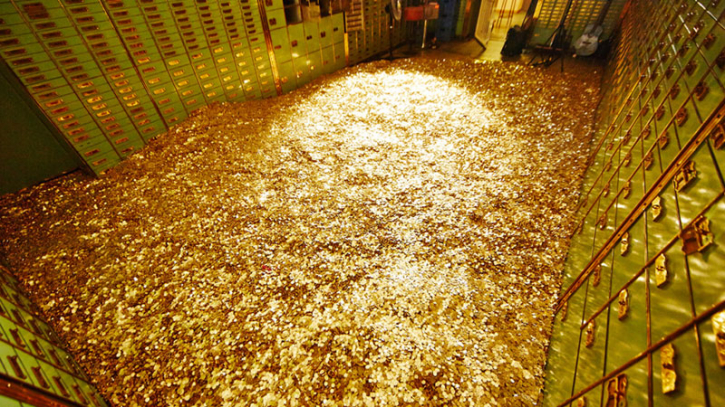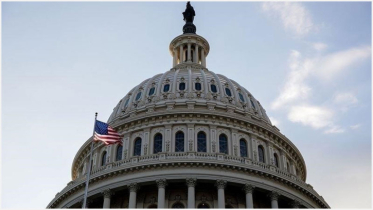Gold climbs to record high

Gold touched an all-time high as fund buying combined with speculation over a Federal Reserve pivot and geopolitical and financial risks underpinned a rally in the precious metal.
Bullion rose as much as 1.3 per cent to $2,141.79 an ounce before paring gains, with Tuesday's high topping the previous record of $2,135.39 set three months ago.
Gold has risen more than 4 per cent since Thursday, fueled by expectations for monetary easing, geopolitical tensions and the risk of an equity markets pullback. Macro funds and momentum buying by commodity trading advisors contributed to the gain, according to TD Securities commodity strategist Ryan McKay.
The scale of the move surprised some market watchers, particularly since there hasn't been a significant change in expectations for the Fed's easing pivot or other macroeconomic drivers during that time.
"The velocity and the speed was very sudden, very fast," said James Steel, an analyst at HSBC Holdings Plc. "It didn't seem to have a smoking gun."
The rising risk of a stock market correction — flagged by weak US manufacturing data on Friday — may have persuaded some investors to move out of equities and into gold, said Ole Hansen, commodity strategist at Saxo Bank A/S.
While the timing of the Fed's pivot remains uncertain, signs that it is getting closer have supported gold since mid-February. Swaps markets show a 64% chance of a rate cut in June, a higher probability than early last month. Lower borrowing costs are typically positive for the precious metal, which doesn't offer any interest.
Macro funds, which haven't been active in the gold market until recently, were a new force of buying in gold's rally. The latest CFTC data showed hedge fund and money managers boosted their net bullish gold bets as of Feb. 27 — although it's worth noting that this group of investors added short positions roughly in line with new long wagers, pointing to uncertainty in the market, according to TD's McKay.
Options-related buying above $2,100 strike price also helped fuel the rally, according to HSBC's Steel.
Gold ETFs
Gold's recent gains has also highlighted an increasing disconnect between spot prices and outflows from bullion-backed exchange traded funds. Holdings in SPDR Gold Shares, the world's largest such ETF, fell by 0.3% on Monday, taking the total to the lowest level since July 2019, according to data compiled by Bloomberg.
Those outflows have partly been offset by persistent central bank demand for the precious metal, which helped keep prices elevated even as real interest rates spiked last year. Physical demand from gold bars and coins also absorbed the gold that left ETFs. Bullion was also supported over the Lunar New Year, as Chinese consumers sought a hedge against turmoil the country's stock market and property sector.
In the first months of this year, gold's role as a haven asset is being underlined by elevated geopolitical risks, with attacks on shipping in the Red Sea showing escalating Middle East tensions. China's economic woes and the US presidential election at the end of the year make it a potentially volatile mix.
"Speculation over a Fed rates pivot and continued geopolitical tensions keep gold shining," said Ewa Manthey, commodities strategist at ING Groep. "We expect gold prices to trade higher this year as safe-haven demand continues to be supportive amid geopolitical uncertainty with ongoing wars and the upcoming US election."
Bitcoin Record
Still, bullion has further to go to reach its inflation-adjusted peaks set more than a decade ago. Gold has risen more than 600% since the turn of the millennium, though adjusted for inflation it remains below the high of $850 touched in January 1980, which would be equivalent to more than $3,000 in today's dollars.
Gold's drive to a new all-time high occurred when bitcoin also surged to a record. While there are arguments that some investors seek safety in both assets, "it's too soon to tell whether bitcoin's a safe haven or not," said Ryan McIntyre, senior portfolio manager at Sprott Asset Management.
Spot gold was trading 0.7% higher at $2,130.03 an ounce as of 3:23 p.m. in New York. The Bloomberg Dollar Spot Index was lower. Silver, platinum and palladium fell.
.png)




